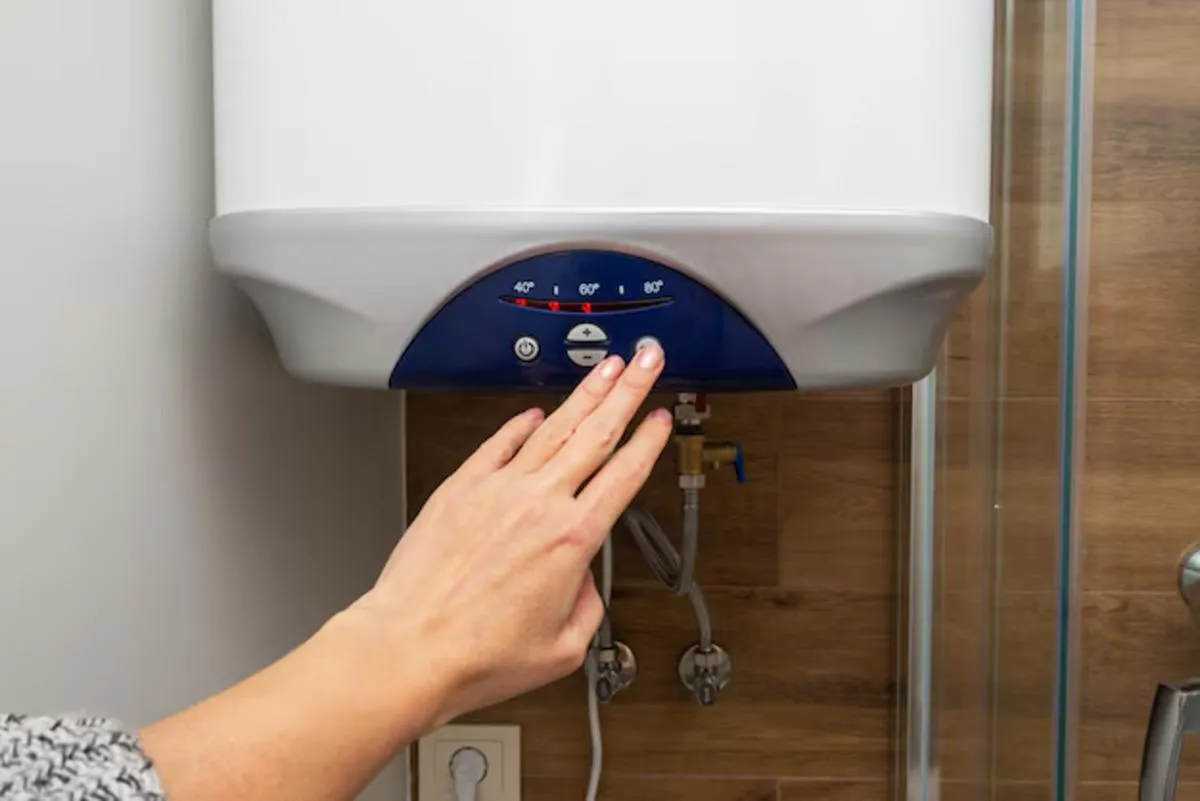Blogs

Comparing Gas and Electric Water Heater Options
Water heaters work behind the scenes every day, quietly heating the water you use for showers, washing dishes, and doing laundry. When one stops working or starts showing signs of age, you’re faced with deciding what type of system is best for your home. For many homeowners, the choice comes down to two main types: gas or electric.
Picking between these two can feel tricky. People often weigh the upfront cost, energy bills, and long-term dependability. In Birmingham, where seasonal shifts bring both hot, humid summers and chilly winters, it's helpful to understand how each option performs and what it means for your comfort and wallet. If you're unsure which type suits your home better, comparing their differences can help make that decision easier.
Differences in Operation
Gas and electric water heaters work toward the same goal: heating water for your home. What makes them different is how they get the job done. Their fuel sources, parts, setup process, and how fast they heat water all play a role in how they operate and what kind of upkeep they need.
A gas water heater uses natural gas or propane to heat the tank. It ignites a flame that warms up the water stored inside the tank. Once it hits the set temperature, the system shuts off until it’s needed again. Because the flame heats the water directly and quickly, recovery times (how fast it reheats more water) are usually shorter. These systems also require good ventilation to safely release gas fumes, which can affect how and where they’re installed.
An electric water heater uses heating elements powered by electricity. These are usually two metal rods inside the tank that heat the surrounding water. While this method doesn’t need ventilation or a gas line, it can take longer for the tank to refill with hot water once it's been emptied. Electric models are generally simpler in design, which makes them easier to place in small closets or basements.
Here’s a quick look at how these two systems differ in operation:
Heat Source:
Gas: uses a burner with a flame
Electric: uses one or two electric heating rods
Recovery Time:
Gas: faster
Electric: slower
Installation Requirements:
Gas: needs proper venting system and a gas line
Electric: needs adequate electrical supply, no vent
Space Considerations:
Gas: may need more room due to venting
Electric: better for tight installs
In Birmingham homes, access to a reliable gas line might push someone toward a gas unit, while others might feel more comfortable avoiding open flames inside the house and stick to electric. Both get the job done, just in different ways.
Cost Considerations
When trying to decide between gas and electric, cost is often a major factor. But that cost shows up in a few different ways: the price to buy and install each unit, what it costs to run it monthly, and what you’ll likely pay in long-term maintenance over time.
Gas water heaters usually cost a bit more upfront. That’s because the installation often involves venting, a gas hookup, and sometimes permitting. However, gas tends to be cheaper than electricity per unit of energy, so running a gas heater every month can be easier on the budget, especially if hot water needs are high.
Electric models are often cheaper to buy and install. They don’t need a vent or gas connection, and so labor may take less time. But electricity prices are generally higher than natural gas, and since these models take longer to heat water, the bills can rise faster.
When looking at the long term, gas units might need more service. For example, vent systems should be checked for blockages, and the flame assembly can wear out with time. Electric heaters often need less ongoing labor, but the heating elements inside don’t last forever and may need to be swapped out at some point.
Think about cost in terms of:
Upfront Costs:
Gas: higher (more parts and labor for safe installation)
Electric: lower (easy setup)
Monthly Bills:
Gas: usually lower over time, depending on rates
Electric: can be higher if daily use is heavy
Maintenance Needs:
Gas: more to monitor and service
Electric: fewer moving parts but heating elements may wear
One Birmingham homeowner switched to a gas model after their larger family put a strain on the previous electric model. Over time, their energy bills dropped because of the faster heating cycle and lower cost of gas, though the upfront install was steeper. So it’s not just about the price tag, but about how your household uses hot water.
Performance and Efficiency
How a water heater performs goes beyond how fast it warms water. It also has to hold the heat, use energy wisely, and keep up with your daily routine throughout the year. In Birmingham, that means handling hot summers and the occasional cold snap without overworking the system.
Gas water heaters often recover more quickly. So if you have a big household or back-to-back showers, they tend to keep up better without noticeable downtime. On the other hand, they lose more heat through venting and can take longer to get going if not in use for a while. Some older models aren’t great at holding heat overnight, meaning they have to reheat more often.
Electric models usually respond slower when empty but hold onto their heat a little longer. Since they don't vent out warm air, they maintain temperature more efficiently during low usage times. If you're away during the day or use less hot water overall, this can make electric units work in your favor.
There’s also the matter of Birmingham weather. Because it doesn’t regularly dip into deep freezes, either system can handle the city's winter without much issue. But in older homes where insulation isn't great, warmer ambient heat from a gas heater can help rooms around the water heater stay less chilly. For tighter or newer homes, though, electric models often win out for their clean and compact design.
Here’s a simple breakdown:
Gas heaters usually deliver a quicker refill, better for homes with high hot water use
Electric models might stretch energy longer, useful for steady or lower demand households
Both handle Birmingham's typical seasonal shifts well, but how much you use and when you use it changes the outcome
A family of five in Bluff Park found that their gas unit made mornings smoother when everyone needed hot water at once. Their previous electric heater lagged behind after the second shower, prompting them to make the switch. Again, what works well in one household might not make sense for another without factoring in full usage patterns.
Safety and Environmental Impact
Safety is another part that can’t be ignored when comparing electric and gas heaters. Each comes with its own set of risks, but knowing what to expect makes those risks manageable.
Gas water heaters need good airflow and regular checks to ensure no fumes or carbon monoxide build up. Things like blocked vents, gas leaks, or faulty igniters can cause trouble if ignored. That said, most have built-in safety mechanisms, like shut-off systems and flame guards, that kick in when something’s wrong.
Electric models don’t use an open flame, so fire risk is lower. But that doesn’t mean they’re automatic winners. Electrical problems like tripped breakers, faulty wiring, or exposed elements can still cause damage if not handled correctly. Grounded outlets and modern breakers help reduce those risks a lot in newer setups.
From an environmental view, the conversation shifts depending on where your energy comes from. Gas heaters use fossil fuel, which adds carbon emissions, while electric units can take advantage of cleaner sources if your local grid supports it. Using electricity from coal isn’t that different than using natural gas from a carbon standpoint. Still, as grids improve, electric heaters may offer a cleaner future.
A few important points to keep in mind:
Gas units need regular inspection for leaks and proper ventilation
Electric units rely on your home’s electrical condition and proper grounding
Environmental impact shifts depending on how your energy is generated in Alabama
For homeowners in Birmingham, safety usually isn’t the deciding factor by itself. Most installations, when done right, follow code and keep risk low. But knowing how each system behaves in your space may guide your choice, especially if air flow, carbon concerns, or breaker capacity are part of the equation.
Which Water Heater Fits Your Home Best
After comparing all the moving parts, from fuel types and performance to budgets and safety concerns, the right system depends on how your home runs day to day. There isn’t a one-size-fits-all answer. What works for one family in a downtown Birmingham townhouse may not suit a couple living out near the edge of Jefferson County.
Smaller homes, lower water use, or tight install spaces tend to pair better with electric water heaters. They’re quiet, compact, and simple to hook up when space or gas lines are limited. Homes with bigger families, frequent water use, or outdoor units may lean toward gas for the faster recovery time and lower monthly fuel cost.
When choosing, think about these three questions:
1. How much hot water do you use each day?
2. Is your home already set up for gas or electric?
3. Do you prefer a lower upfront cost or better long-term savings?
Also, take Birmingham’s weather into account. While it doesn't get extreme winters, those few cold weeks still matter when your water heater is working harder. And during humid summers, you’ll want something that doesn’t waste energy just sitting idle.
Whatever direction you’re leaning, having an experienced professional look at your home setup before committing is a smart move. They’ll catch small details that can make a big difference in performance, efficiency, and safety, leaving you with a system that fits your space and your routine without surprises.
When it comes to choosing the right heater for your home, making the right decision can ensure comfort and efficiency for years to come. With options like gas and electric varying in performance and cost, it's wise to consult a professional to see the fit for your setup. Keith the Plumber is here to help with expert advice and seamless installations, whether you need a new system or a water heater replacement in Birmingham. Get in touch with our team to find out how we can keep your hot water flowing smoothly.
© Keith The Plumber - All rights reserved

